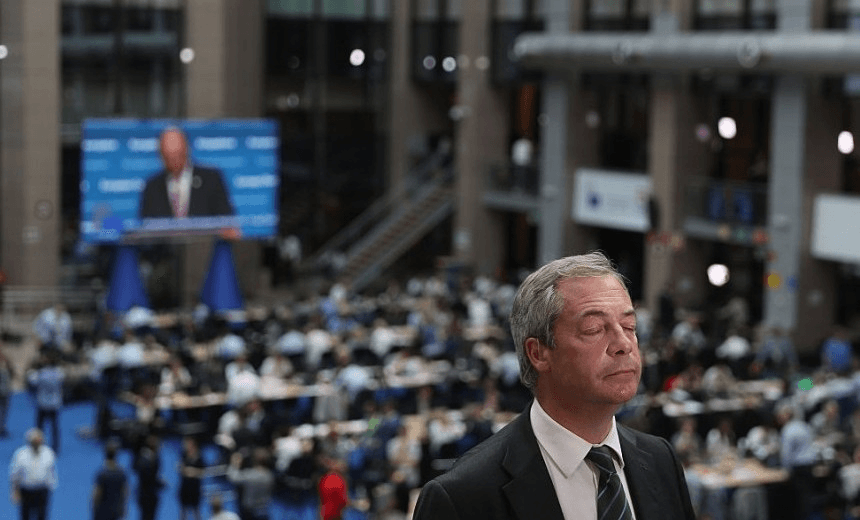The Brexit vote is entirely understandable. In Britain and across western democracies, some sense of democratic renewal is needed to avoid alienation, writes former NZ prime minister Sir Geoffrey Palmer
Brexit resulted in my view from a break down in accountabilities. It is entirely understandable.
Having spent most of February in the UK when the whole campaign for the referendum got under way in earnest I was not surprised, although I thought that Remain may win narrowly. My point is essentially constitutional. There has been created by the EU a democratic deficit.
The whole thing began with the European Coal and Steel Community after the World War Two. This progressed in time to the Common Market, known as the European Economic Community, and then the European Union. I think after the Lisbon Treaty things began to become very difficult to manage. It started out small and progressed to 28 nations.
There are inherent difficulties with super-national organisations of this type. Who is in charge?
In some ways what happened in Europe amounted to a political confidence trick.
The basic feature of the UK constitution is parliamentary sovereignty. That means the Westminster parliament is supreme and can make any law it likes. When the UK went into Europe this effectively stopped. MPs were elected to Westminster but some of law making power, in fact quite a lot, drained away to Brussels in a series of treaties.
Thus the MPs at Westminster did not have the same control. The public looked to them for accountability but the MPs were not responsible for what occurred in Brussels. Yet what was done in Europe had important consequences for the voters in Britain.
British ministers had some input in Europe but often could not secure their own way. The European Parliament is very weak and the Commission very powerful.
So how could the British public hold their elected representatives to account for what policies were adopted and change those policies if they did not like them? Changing the government did not and could not change what happened in Europe.
I hold that these fractured accountabilities led to what happened in the vote.
So long as the organisation was confined to trade or a customs union these problems did not arise, any more than they do with the free trade between Australia and New Zealand. But when the treaties took more and more control away from national parliaments unease increased. The Tory Party in Britain has been split for 30 years on the European project.
The euro will not work long term because although there is a European Central Bank there is no control over the fiscal policies of individual countries. The effects of the common currency on the Mediterranean countries like Greece and to a lesser extent Italy and Spain have been very harsh.
Europe had to go forward to something like a United States of Europe with a strong federal government or it had to go back. Where it is presently positioned was unsustainable and there will a correction. I have thought ever since the last treaty was concluded that the project was politically unsustainable. Further, the organisation is now too big. Bulgaria and Romania hardly have much in common with the rest of of Europe.
The political elites have foisted a new system on ordinary people and the ordinary people do not like it. So when the people have an opportunity to decide they reject it. Their fear about jobs and their sense of insecurity about immigration are entirely understandable.
They may be wrong and the economic implications at least in the short term will be considerable. But remember there is an old saying in politics that the people are never wrong. Remember Britain has an older and more effective democracy than any other country in Europe and with a longer democratic history and vigorously democratic politics. At bottom to the British electorate the European project did not seem democratic.
No doubt this is a major global event and may have further ramifications for Europe. I think for both Australia and New Zealand the consequences will be rather mild.
In Scotland it seems to me that they will get another vote whether to stay in the UK and will take it. The UK may break up. The last referendum in Scotland was conducted on the basis that the UK was staying in the EU. As JK Rowling observed she would now favour leaving the UK to stay in the EU.
There is a further and wider set of issues that also relate to democratic governance. There exists in many countries an underlying alienation of a significant portion of the population concerning the exercise of power by what they see as economic and political elites that the voters cannot influence. In Britain this is called the political class. But this development is as much about social and economic power as political. The same appears to be happening in the US with the Trump ascendancy. I hope it doesn’t happen in New Zealand. But growing economic inequality may lead it that way. Some sense of democratic renewal is needed to avoid alienation, there is a sickness in western democracies.
Sir Geoffrey Palmer QC is a former NZ prime minister, a lawyer and a writer.

